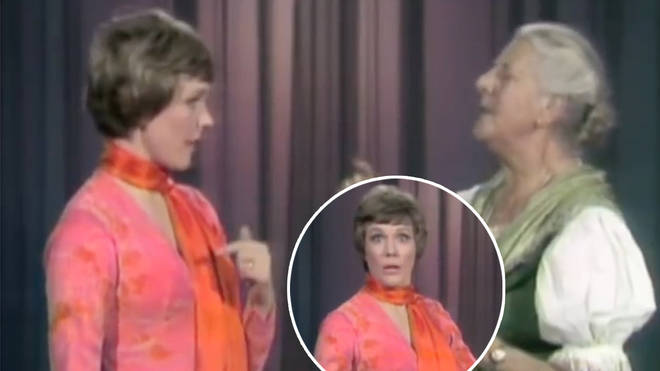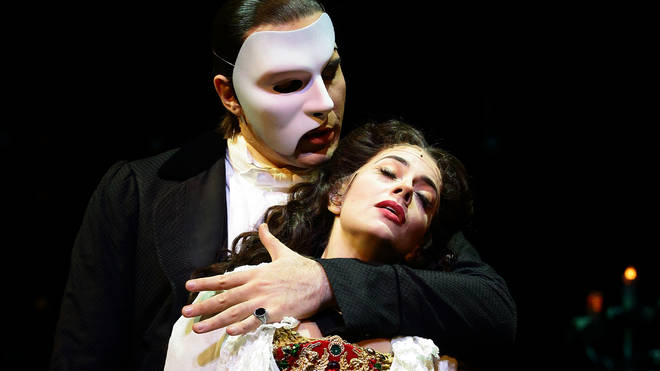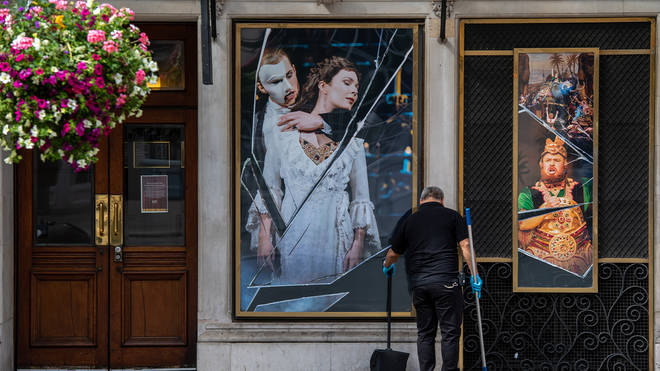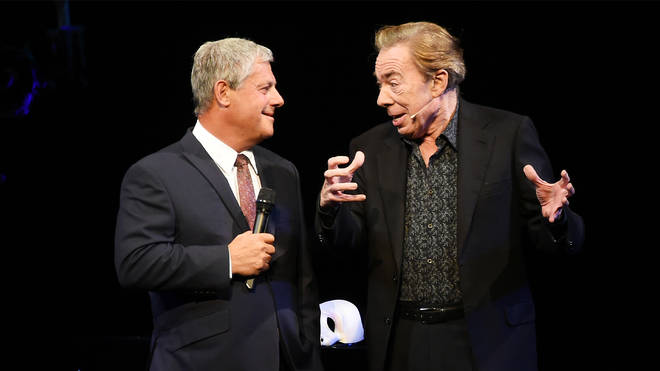| Martin Böttcher | ||||||
| ||||||
It's all about the classical music composers and their works from the last 400 years and much more about music. Hier erfahren Sie alles über die klassischen Komponisten und ihre Meisterwerke der letzten vierhundert Jahre und vieles mehr über Klassische Musik.
| Martin Böttcher | ||||||
| ||||||
John Herndon Mercer (November 18, 1909 – June 25, 1976) was an American lyricist, songwriter, and singer. He was also a record label executive who co-founded Capitol Records with music industry businessmen Buddy DeSylva and Glenn E. Wallichs.
He is best known as a Tin Pan Alley lyricist, but he also composed music. He was also a popular singer who recorded his own songs as well as songs written by others from the mid-1930s through the mid-1950s. Mercer's songs were among the most popular hits of the time, including "Moon River", "Days of Wine and Roses", "Autumn Leaves", and "Hooray for Hollywood". He wrote the lyrics to more than 1,500 songs, including compositions for movies and Broadway shows. He received nineteen Oscar nominations, and won four Best Original Song Oscars.
In 1931, Mercer married Ginger Meehan, a chorus girl, later a seamstress; and in 1940, when he was 30, the Mercers adopted a daughter, Amanda ("Mandy"). In 1960, Mandy married Bob Corwin, pianist for Peggy Lee, Anita O'Day, and Carmen McRae, and Mercer's long-time accompanist. They had a son, Jim Corwin, in 1961.
In 1941 Mercer began an affair with 19-year-old Judy Garland, while she was engaged to composer David Rose. Garland ended her involvement when she married Rose. In later years, Garland and Mercer rekindled their affair. Mercer stated that his song "I Remember You" was the most direct expression of his feelings for Garland.
Mercer died on June 25, 1976, from an inoperable brain tumor, in the Bel Air neighborhood of Los Angeles, California. He was buried in Savannah's historic Bonaventure Cemetery. The line drawing caricature adorning his memorial bench is a reproduction of a self-portrait.

In the last year of his life, Mercer became fond of pop singer Barry Manilow, in part because Manilow's first hit record was "Mandy", which was also the name of Mercer's daughter Amanda. After Mercer's death, his widow, Ginger Mehan Mercer, arranged to give some unfinished lyrics he had written to Manilow to possibly develop into complete songs. Among these was a piece titled "When October Goes", a melancholy remembrance of lost love. Manilow applied his own melody to the lyric and issued it as a single in 1984, when it became a top 10 Adult Contemporary hit in the United States. The song has since become a jazz standard, with notable recordings by Rosemary Clooney, Nancy Wilson, and Megon McDonough, among other performers.

By Maddy Shaw Roberts
How do you solve a problem like Maria? Well, how about a yodelling lesson, for starters…
In 1965, Julie Andrews yodelled her way into all our hearts with her portrayal of Maria Von Trapp, governess to the seven Von Trapp children in The Sound of Music.
And it turns out, Andrews really got to meet the real Maria Von Trapp whose family’s story – somewhat loosely – inspired the hit film.
In one scene, Maria helps the children put on a puppet show, and sings along to ‘The Lonely Goatherd’ (that’s the one that goes ‘High on a hill was a lonely goatherd, lay ee odl lay ee odl lay hee hoo’) as they perform.
But according to real-life Maria, well, “There is yodelling, and then there’s… yodelling.”
During an episode of The Julie Andrews Hour, a television variety series which ran for one season in 1972, the two Marias appeared on stage together to act out a yodelling skit.
In typical Julie Andrews style, she opened the dialogue with a classy, comic line: “You know I played you in the picture and you are you, and I am me, and since you are you and I was you, and since you’re here, and I’m here, and I was you, um…”
Watch: Real-life Von Trapp great grandchildren sing a breathtaking, impromptu ‘Edelweiss’ >
“What do you want to know?” real-life Maria prods her.
“I want to know… how was I?” Andrews smiles.
“You were absolutely wonderful,” Maria replies. “But,” she adds, Andrews’ yodelling could do with a little work.
Von Trapp offers to teach Andrews a “genuine Austrian yodel”, first demonstrating the melody that Andrews should sing underneath Von Trapp’s yodelling descant (watch above).
Once Andrews has got the two phrases nailed, Von Trapp bursts into a virtuosic display of yodelling, eager to show the world the real singing tradition of her home country, not the one portrayed in Hollywood.
For years, alpine yodelling was a rural tradition in Switzerland, Austria and southern Germany, but in the 1830s it also became a popular sound in theatres and music halls.
In real life, Maria Von Trapp joined the Von Trapp family as a tutor for just one of the ten children, who was recovering from scarlet fever. She married Georg, their father (played by Christopher Plummer in the film) a year later, in 1927.
The family, and all its 12 singing members, emigrated to the US when the Second World War hit, to escape the Nazi regime in Austria. There, they became well known as the ‘Trapp Family Singers’. And in the 21st-century, the Von Trapps are still going – here’s four of Maria and Georg’s great-grandchildren, singing a breathtaking ‘Edelweiss’:
... leaving musicians without a job

By Maddy Shaw Roberts, ClassicFM London
Phantom of the Opera was celebrated for having the largest orchestra in the West End. Now, it’s being sliced in half.
Despite promises the original production would return after coronavirus restrictions are lifted, The Phantom of the Opera’s orchestra will be cut in half when it returns to the West End.
Andrew Lloyd Webber’s hit musical, once celebrated for having the largest orchestra in the West End, has reduced its players from 27 to just 14.
All 27 members were released from their contracts while Her Majesty’s Theatre was undergoing refurbishment, with hopes they might be rehired. Now, while 14 musicians can re-audition for the show’s return on 21 July, 13 of the jobs no longer exist.
Instruments including the oboe, harp, percussion, trumpets and horns have been cut, and there will be a trimmed-down violin section.
The production will replace traditional instrument sounds with keyboard effects. A statement says the “modern instrumentation… will give this timeless score the freshness of a new musical”.
Read more: Phantom orchestra records virtual ‘All I Ask of You’ response for Lloyd Webber >

Phantom producer Cameron Mackintosh, and the Really Useful Group, say this reduced orchestration, which is used for the UK touring production, has also already been “created for the international productions of the show”.
“These orchestrations are just as thrilling and rich as the original but would not have been possible with the technology available in 1986,” they added.
There are great concerns the move will leave musicians high and dry in what has already been a disastrous year for the arts.
Matt Dickinson, the percussionist for Phantom, was devastated to find out his job had been cut. “I sacrificed so much, willingly, to be a part of this wonderful show and yet I will leave with nothing more than the shirt on my back: no severance to speak of and my livelihood and that of my family in absolute tatters,” Dickinson tweeted.
“I don’t even have the opportunity to re-audition for my job and am unclear what the future holds.”
Horace Trubridge, general secretary of The Musicians’ Union, said the organisation was “sad and disappointed” by the move.
Read more: Musicians still ‘falling through the gaps’ as £400m promised to arts >

The Phantom of the Opera, London’s second-longest-running musical, closed its curtains on 16 March 2020 due to the coronavirus pandemic.
Last year, it was promised that “the brilliant original” production would return.
In August 2020, Lloyd Webber said: “Phantom will be back up there and even better than before. We’re going to have the original production and it will be fantastic.”
The composer and orchestra have historically enjoyed a close relationship. In April last year, the entire orchestra recorded a virtual ‘All I Ask of You’ to “show their support and respect for Andrew”. Lloyd Webber said he was “incredibly touched” by their creation.
The move to cut the orchestra in half has been widely criticised by industry figures, including British composer Thomas Hewitt Jones, who tweeted: “This has been a rumour in our industry for a while, but here it is confirmed in plain sight. It is incredibly disappointing that theater mega-producers set this kind of example.”
Meanwhile on Broadway, Phantom’s producers have committed to return with a full pit and have condemned the “downsizing of musicians” in the West End.
Adam Krauthamer, president of the New York City musicians’ union, told Playbill: “Producers who take advantage of a worldwide pandemic in order to cut live music are cheapening their productions and robbing the audience of the full experience of musical theater.”
By Rosie Pentreath, ClassicFM London
@rosiepentreathAs ‘The Lark Ascending’ tops the Classic FM Hall of Fame a record eleventh time, a new film has been released featuring classical musicians sharing their personal experiences of the popular piece.
The enduringly popular Lark Ascending has topped the Classic FM Hall of Fame for another year.
But why do we love it so much? Inspired by the piece’s enduring place at the top of our Hall of Fame, the Royal Philharmonic (RPS) has created a film exploring just this.
The RPS asked famous musicians and dedicated music lovers to talk about what the piece means to them, in a beautiful new film.
We see several personalities from different corners of the music profession – including violinist Tasmin Little OBE and composer Sally Beamish OBE – each sharing, from lockdown, their own impressions of Vaughan Williams’ beloved masterpiece, telling us about what it means to them.
“I’ve played The Lark Ascending more than 60 times and each time has been a unique experience. I feel there’s something else at work in this music,” Little says in the film. “The idea of this little bird in this huge sky, soaring closer and closer to heaven… I think there’s something very spiritual about this concept, and such peace and tranquillity in the music that it helps us to find our own sense of peace inside.”
Violinist Elena Urioste says she experiences “a sense of inhalation and exhalation” throughout different phrases of the piece.
Conductor Ben Gernon shares what it’s like to face the orchestra from the podium, during a performance of the piece. “I always look forward to conducting The Lark Ascending. I find in performance it has this amazing ability to reach absolutely everyone. It’s a beguiling and mesmerising piece, but it’s actually quite simple – and its success lies in how it brings the outside world inside the concert hall.”
Meanwhile, composer Sally Beamish OBE describes Vaughan Williams’ music as “genius”, pointing out how innovative it would have been at that time to write something so descriptive and free for the violin.
“The violin writing is just stunning,” Beamish adds.
Pianist Tom Poster also features, introducing his thoughts on the original violin-piano arrangement of the piece. And cultural historian Gavin Plumley is on hand to round the story off, with where it fits in a wider historical and social context.
It makes for an inspiring watch – and beautiful too, with George Meredith’s poem that originally inspired the work woven throughout the film.
Read more: How to become a member of Royal Philharmonic Society >
To watch, sign up to RPS’s membership here. RPS Membership is designed for music lovers to further their curiosity in classical music and get the chance to attend exclusive in-person and online events, and nominate artists for the prestigious annual RPS Awards.
Watch the film The Lark Ascending in full on the Royal Philharmonic Society’s website by becoming a member today. Visit: royalphilharmonicsociety.org.uk/lark to find out more.